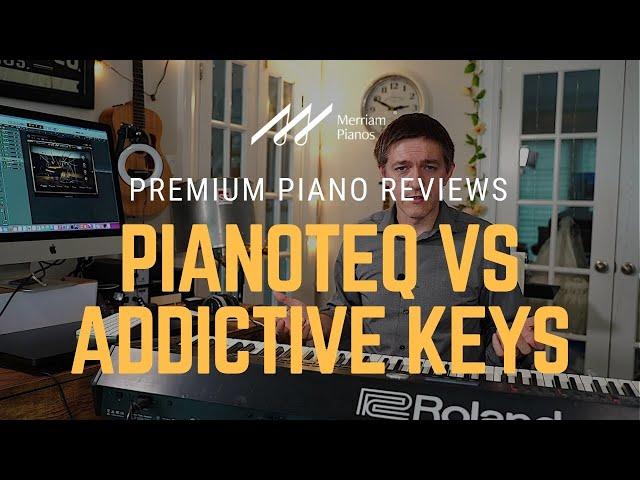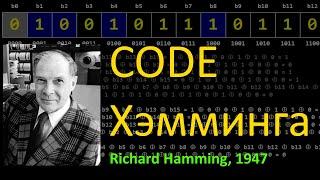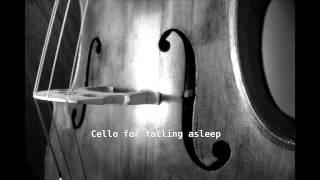
Addictive Keys vs Pianoteq Piano VST Plugin Comparison & Demo - Modartt & XLN Audio
Комментарии:

demoing right now pianoteq. It could not cut through mixes where the stock logic grand piano and Steinway can. Also this pianoteq sounds thin and at same time muddy at low end.. this is me and i am msking AB comparisons. In the end its the feel and cut through the mix what counts. For now i'll try this addictive keys. Thanks!!!😊
Ответить
I was most definitely feeling addictive keys more. PT had a lot of high end frequencies i hadnto turn my volume down.
Ответить
Good!!!!🎉
Ответить
Sir, I like the overall flavor of your songs; the chords, the whole thing; the melody and tone are more jazzy but so dark. It hides secrets in the shadow of a riddle. I can translate it into a vision of a dark hazy landscape at sunrise. Sir, your song is dark and jazzy and cinematic ,Why are you not composing instrumental piano with an orchestra and sounding like your style of music? like the David foster ? You are capable of becoming a composer, especially of movie scores.c
, but I don't like the tone of Addictive Keys. It is overyly thin and bright with an electronic feel, unlike Vienna Imperial, which has a body and is purely organic to hear.

I have addictive keys. I got it free with my interface. I also have the demo of Pianoteq. First thing I noticed is AK has no change in tone from playing softly to harder. Just the volume changes. Where as PK the tonal response changes with how hard or soft you play. So for me Pianoteq wins on the realism.
I was a bit confused on Pianoteq maybe someone can enlighten me.
When you buy Pianoteq. Do you get any pianos with it? Or do you then have to purchase addons to have any piano samples?

I think the biggest difference is to learn to actually play and mix.
Ответить
Forget the plugins, your playing is great!
Ответить
Thank you so much for this valuable VST piano comparison. I really appreciated your playing skills. I would love to know the name of the songs you were playing.
Ответить
Do you have a video on how to set up a system like you are using? If not could you do one that shows what software and hardware you would need ? Thanks for all the great info that you share in all your other videos!
Ответить
People compare these plugins because from a producer's perspective it does not really matter what the technology behind it is. The fundamental thing is if it sounds good or not and this is independent of the technology since there are sample based instruments that sound superb and that sound bad
Ответить
Just want to add that the price difference is not big, you can get the basic Pianoteq 7 with 2 instruments of your own choosing for € 129 including VAT. You get a lot for your money.
Ответить
Good day, Stubert!
Ответить
As a recording engineer, I tried some vst pianos a few years back - Pianotec was one, True Pianos another. They all fell apart when pressing the mono button! First lesson in microphone technique and recording alike is mono compatiblity for various (important) reasons. So my tip for production use is ultra basic. Hit mono BEFORE you test your pianos. For home users, it's no problem. I must test some current versions . . . .
Ответить
Amazing playing as always, and just another day of requesting you test Embertone Walker D Lite. It can take some tweaking to run smoothly, but at $39 without requiring the full version of Kontakt, I think it has to be the most bang-for-your buck library out there. If you don't mind the single mic position, it's one of my keepers along with Ravenscroft and Pianoteq. And the full library isn't unreasonable at $149, plus there are alacarte options for mic positions too.
Ответить
Can you compare Arturia Piano V2?
Ответить
FOCUS. Rick Beato in his early materials has had the same issue. Hand adjusted focus and low complexity pattern shirt please :)
Ответить
Pianoteq summer sale is on at present!
Ответить
Pianoteq is like joining a club...when you're in...you're in...updates and adding instruments is very reasonable.
Ответить
What is “VST?”
Ответить
I would love to see a video comparing Ravenscroft 275 to Pianoteq. The only major drawback to Pianoteq is the price. If you want the ability to modify the tone to the extent demonstrated in this comparison video, you need to at a minimum buy the Standard version, which is $300. While Ravenscroft 275 doesn't let you explicitly position mics in the same way as Pianoteq (as it is still a sampled VST), there is still a very nice arrangement of mic positions to choose from. And, similarly to Pianoteq, there is quite a lot to play around with to completely alter the tonality and voicing of the piano, and you get all of that control for just $200 (sometimes as low as $140 when it goes on sale). This is in my opinion the most impressive aspect. Considering that it is sampled, I was surprised to see it offer as much control as it does. To me, Ravenscroft 275 really feels like the best of both worlds. You get the realistic detail offered by sampled, with the control of a modeled synthesized piano. It would be very interesting to see how these two stack up in terms of customization. I have a feeling it would be far easier to achieve an "apples to apples" comparison with these two.
Ответить
The real piano sample (addictive keys) wins fake computerized piano(teq). Even with the more fake options. Real piano sample wins computer fake piano every day of the week😜
Ответить
One reason I use Pianoteq is that I have used Linux exclusively for around 20 years or more. Pianoteq runs natively on Linux. On Linux it's not a "plug in" but a stand alone application. You need nothing else other than a MIDI keyboard to operate it. It sounded quite nice being driven with a Casio PX-150. However with the PX-150 I could not play it in conjunction with Pianoteq because there was significant latency between the two. Now that I have a Yamaha DGX-670, the latency issue disappeared. When the Pianoteq voices are combined with the internal piano voices of the DGX, the end result is one of the most beautiful pianos I have ever played, acoustic or digital. I used to have permission to practice on Don Ho's Steinway B at the Polynesian Palace in Waikiki. My other experience is with the Steinway D in the basement rehearsal room at Denver University. It's a very good well tuned piano. My Yamaha DGX setup when combined with Pianoteq honestly does sound very similar to the Steinway D at Denver University. The Yamaha CFX combined with the Hamburg "Classical" voice is an incredibly good sounding instrument Every time I play it, I'm totally blown away by the quality of the voice which is produced. The voice is solid, rich, clear, thick, perfectly in tune, and gives the sense that you are sitting behind a very fine well cared for absolutely top of the line grand piano. None of the 88 notes is overly harsh or dead. It has the feeling of a playing an acoustic that is very evenly voiced and completely regulated. I can play notes that sound light as a feather; yet the instrument has significant power if you want it. Why doesn't Stu experiment with combining voices? If there are no latency issues the end result can be very satisfying. We need to hear how the standalone digitals that Merriam sells sound when combined with Pianoteq. The negative of a DGX is that its string voices don't sustain with the sustain pedal, so I'm pretty much limited to using just the internal piano voices of the DGX. I would like to know what other options are out there. Perhaps an RD88 would be a better choice over the DGX. I just don't know because the combination has never been demonstrated.
Ответить
Would be interseting, how a reasonable priced VST like Addicive Keys compares against Kawais or Yamahas internal sound-engines from their best digitals, aka CA-79/99 or CLP-7x5)
Ответить

























